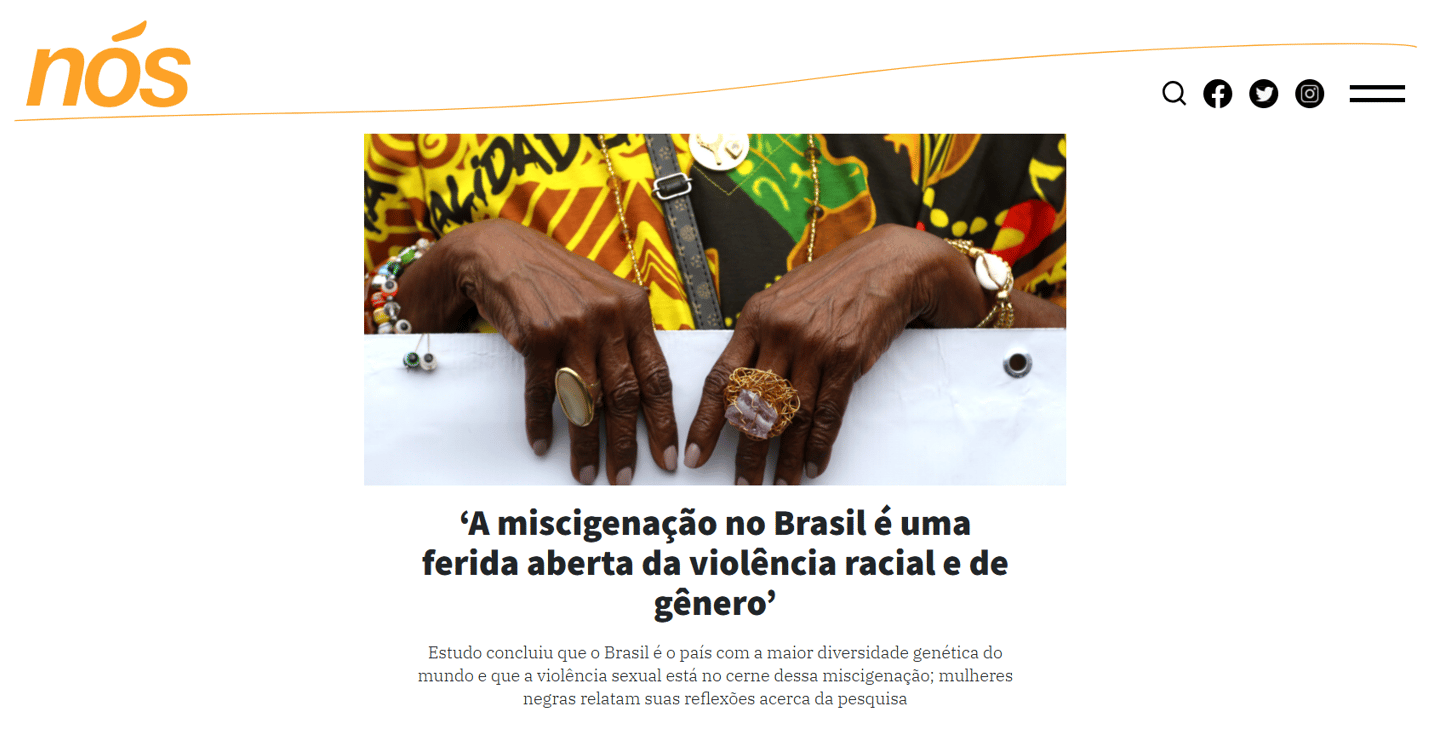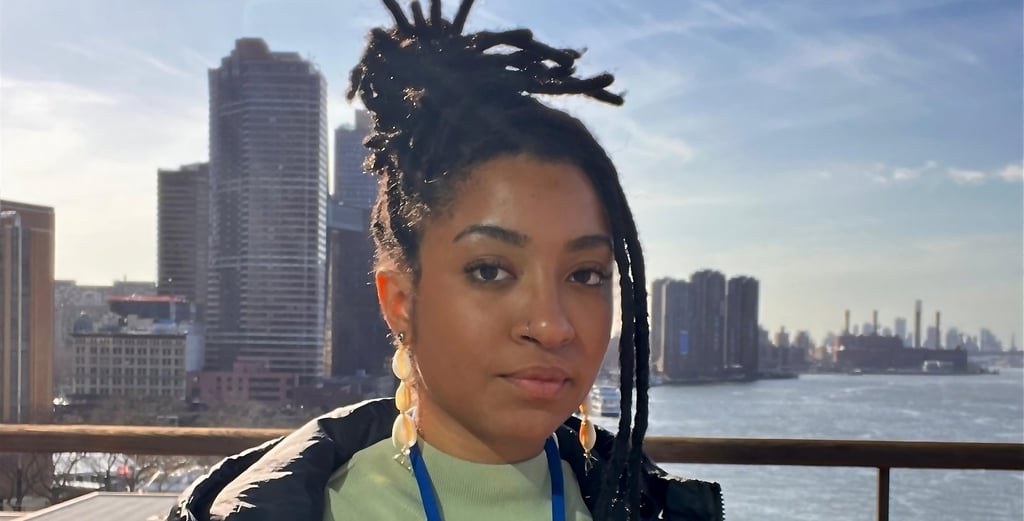'Miscegenation in Brazil is an open wound of racial and gender violence'
Study concludes that Brazil is the country with the greatest genetic diversity in the world and that sexual violence is at the heart of this miscegenation; black women share their reflections on the research
Nós / Beatriz de Oliveira
5/28/20252 min read


Brazil is the country with the greatest genetic diversity in the world. This is the conclusion of a study by the Genomes Brazil Program, which was published in the journal Science on May 15. According to the research, this genetic diversity is largely the result of sexual violence perpetrated by European men against black and indigenous women during the colonial period.
A total of 2,723 genomes of Brazilians from different ethnicities and geographic regions were analyzed, resulting in 60% European ancestry, 27% African, and 13% indigenous. Eight million genetic variants were identified, making Brazil the most mixed-race population in the world.
The genome is a person's genetic code, showing the sequence of DNA (deoxyribonucleic acid, the molecule that contains genetic information) that contains all hereditary information.
Another point brought up by the research was that miscegenation produced a varied mix of African ancestries in the Brazilian population, which was caused by the intermingling of people from different regions and ethnicities in Africa.
The fact that sexual violence is at the heart of this miscegenation was already known even before the publication of the research, but seeing this with well-defined genetic data can generate feelings and reflections about the legacies of slavery. With this in mind, we gathered reports from three black women who are dedicated to looking at the current consequences of the colonial period and the struggle of black feminism. Check it out.
“Miscegenation in Brazil is an open wound of racial and gender violence.”
Beatriz Sousa, a young black feminist from Salvador, is an activist at Odara – Instituto da Mulher Negra (Black Women's Institute), where she contributes to the Black Youth Center and the Health Program.
Full text
Beatriz Sousa is a young black feminist from Salvador © personal archive
"The research makes explicit what we all know: miscegenation in Brazil did not happen in a romantic way, but is a colonialist legacy and an open wound of racial and gender violence.
In this context, we see how the sexual and reproductive rights of black women have been violated historically, how this body has been dehumanized in every sense in the history of Brazil. This violent and racist legacy continues to haunt us in the alarming figures for obstetric violence and maternal mortality, which mostly affect black women. Black women and girls are the main victims of sexual abuse in Brazil, black girls' bodies are sexualized at an early age, invaded and adultized.
The feeling that remains is that the violence against our bodies is long-lasting and has ancient roots. The violation of the bodies of racialized, black and indigenous women was, and still is, an ongoing project in this nation. That's why we need to reaffirm every day that our bodies belong to us."




